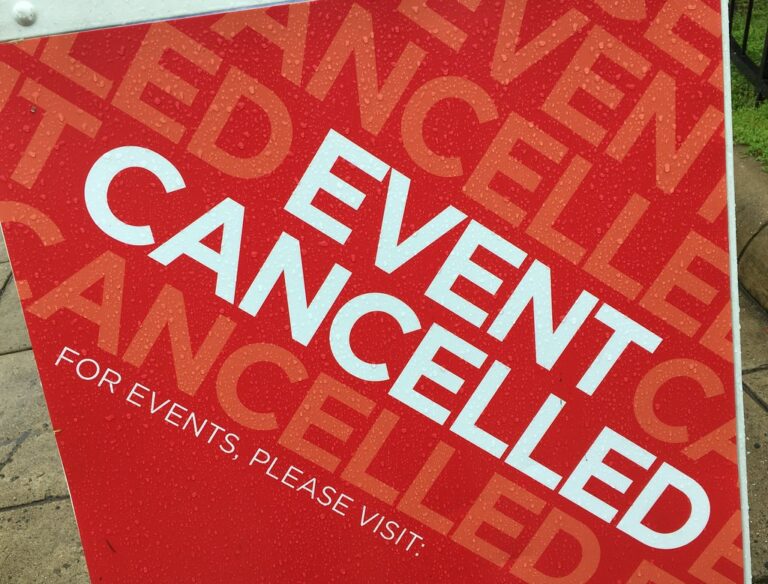Gift Aid rules relaxed on donating refunds for charity events

HMRC has relaxed the Gift Aid rules on donating refunds due on charity events that have been cancelled due to Covid-19. This will make it easier and quicker to Gift Aid donations back to charities.
This has now been incorporated into Chapter 3.45 of the Guidance Chapter 3: Gift Aid. This means that if an event is cancelled, the repayment can potentially be treated as a Gift Aid donation without the refund being physically paid to the donor first.
This guidance is reasonably straight forward. However, as with all matters relating to Gift Aid, it is important to take care that all the rules relating to regular/normal Gift Aid are complied with, as well as any elements that are specific to this new guidance.
Advertisement
Let’s look at two of these in more detail.
“The donation will be considered to have been made at the date of the waiver and not the date of
the original payment.”
Care needs to be taken when capturing the donation details onto any Gift Aid software that the correct date is posted and that any Gift Aid Declaration made for this one specific donation does in fact have the correct and applicable date.
“What HMRC considers to be a formal waiver depends on the amount being waived.“
Here HMRC are being less specific in the definition of the material nature of the amount being waived/donated. I
believe that HMRC are looking to charities to be sensible and realistic in implementing this regulation.
Provided that the charity has put in place auditable evidence to show that the procedure and rules have been followed and equally, evidence that there has not been any misrepresentation, then this should be sufficient. However, always remember that HMRC is the final arbiter in these matters, and if there is any doubt, then a formal written confirmation should be requested from HMRC.
There are likely to be other issues that could arise in relation to this guidance. Some of these could include the following:
Building in the waiving of any potential refund into the ticket conditions. Consider a balloon ride fundraising event. These always carry the risk of cancellations as result of adverse weather conditions, which are often only realised on the day. Clearly this would have to be an active opt-in to this condition at the time of purchasing the ticket. It would however simplify the refund process in that, a bit like the Method A and Method B schemes in Retail Gift Aid, no follow up permission would be required.
Clarification of how this is implemented where payment is made by a central body, but for multiple participants. So if for example, a social club arranges for an outing and the fee is for the bus, lunch, and entrance to a museum. The chairman collects all the money and makes a central payment. The event is then cancelled. Whilst it would seem that this could apply under this rule, the charity would need to ensure that proper records were kept, especially to cater and account for any party which did want the refund.
Catering for any other refunds, not necessarily for cancelled events. Although not exactly classified as a cancelled refund, it may be possible to consider expanding this Gift Aid opportunity elsewhere.
1. Most stores offer an exchange /refund service
Since this guidance now exists, it may be opportune to invite shoppers to donate some of the value of their returned item to charity. The store could include this as part of their CSR policy and it would also be another metric for their own customer behaviour.
2. The current pandemic and associated economic hardships have led some supermarkets to operate ‘food donations’.
Shoppers are encouraged to buy an extra item or two and leave it in a collection bay for distribution via a food bank. Rather than selecting items which may not be required, shoppers could be offered the opportunity to make this donation as part of their bill. This could be linked to their loyalty card, which would allow the collection of the Gift Aid information at the same time.
c. “Inconvenience refunds”
Many companies do unfortunately find that they make small payments to customers as a result of poor service. Companies could add the option of this payment being made to a charity, again with the increase of Gift Aid.
This represents an initial response to this new Gift Aid Guidance from HMRC. It must again be stressed that the ink is still wet on this guidance and that it is likely that HMRC may need to review some of the applications that charities may wish to implement. You are strongly advised to take care when applying this guidance and if in doubt get confirmation directly from HMRC.
Disclaimer
• Whilst the information presented here is believed to be correct and given in good faith, it cannot be a substitute for the formal legislation, which can also change over time.
• You are therefore urged to confirm any undertakings with your professional advisors or with HMRC directly.
Barry Gower is Director of Gift Aid consultancy GAIN.
He is running two online courses for UK Fundraising soon:
Introduction to Gift Aid (20 May 2021)
Retail Gift Aid: how charity shops and trading activities can use Gift Aid (10 June 2021)
Main image: event cancelled by cogdog on Flickr.com




